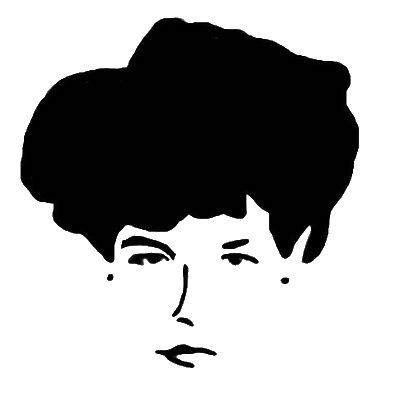She is back in town, and she has armed herself with a sentence: A fully-grown woman, I am returned to the town of my birth.
She might write her sentence in a letter. Dear friend, for example. A fully-grown woman, I am returned to the town of my birth. Imagine the fields. Nine pastures. A clump of wooden houses. The stale row of shops. Yes, there’s a castle, too, I think, planted to the right—that’s the East. Or if you are frowning, if you’ve forgotten how to laugh, then picture my face. Do you remember my looks? A mean nose. Long-necked. I still have the errant eyebrow. Might you single me out of a crowd? Say I am standing in a thicket of townspeople. Imagine I am clothed like the others. I am garnished, as the others are garnished, with mud, soot. I am fully-grown, and there is hay in my hair. I don’t want to waste anymore of your time. Please believe that I am desperate to leave you your time.
But she isn’t one to write. She doesn’t write. She does not keep distant friends. A friend is proximal. She’s said so in public. A friend is proximal. She expects the phrase will catch.
As for Mother and Father, they take little interest in her homecoming. They pull open the door. They do not step aside so as to allow her to enter the house. They close the door.
“I will go to the tavern,” she says.
Mother and Father aren’t listening.
“I am back in town, but I will go to the tavern.”
Every return has an expiration date. Every return has an expiration date, and so does her own. She won’t be back in town for long. The days will heap themselves upon themselves, and then? Then she will be in town. She will be in town: merely, utterly.
Everyone is in town.
In town, even the tourist becomes a resident.
Everyone is a resident in town, and so the people are known by the titles of their professions or the honors of their ranks. The butcher. The surgeon. The old man clothed in leather. The queen and her bastard. The young man clothed in leather.
The tavern is poorly lit. There are sconces affixed to the walls, but few hold candles. She believes the lack of candles to be intentional and the quality of light tavern-like. Tavern-like is the very best description for the light. She says so aloud and nearly loses her breath. She is seated at the counter.
A self-proclaimed Mitchel claims the seat next to hers. “It’s me, Mitchel,” says Mitchel.
She is not familiar with Mitchel. If she has known Mitchel then she has also forgotten Mitchel. That is how it must be. She decides to consider Mitchel an old acquaintance, a leftover from her childhood. She wonders if Mitchel protected her from the fists of other children. She wonders also if she was beaten by Mitchel for the children’s entertainment. The beating probably occurred on a field or under a sliding board.
She drinks from her cup of beer so that Mitchel will think her more thirsty than dumb. She remembers the face of an adolescent: a boy with a branded cheek. Once she shared her jar of cosmetic paint with the branded boy. They stood behind the schoolhouse, and she used her thumb to apply the gummy white paste to the boy’s scarred skin. Shortly thereafter the boy was beaten. He developed bruises. When she offered to share her paint again, the boy punched her on the mouth. It didn’t hurt.
“Mitchel,” she says. “Yes, Mitchel.”
She thinks it right to offer her hand. She offers her hand.
“Where have you been?” Mitchel asks. Mitchel does not have a branded face.
The tavern. She’s been at the tavern for several hours. She believes her complexion has adopted a tavern-like quality.
As for Mother and Father, they closed the door. She is curious as to how they are passing the time. She imagines them playing like empty-nesters, roaming freely about the house and yard in their sun-bleached underthings.
“My parents are dead,” says Mitchel. “I’ve inherited their house and horse.”
She attempts honesty with herself, and what she comes up with is a question. Who is Mitchel? She is feeling a little troubled, like an animal seated in the road.
A house and a horse. Does Mitchel think her the type to be impressed by a house and a horse?
She has a thought: I am impressed.
She is impressed. She rejoices inside, deep inside. She does so by imagining her internal organs. Her organs are happier now in their toiling, and stuck with confetti.
“I’ll have another beer,” she says, and then she is ashamed to have spoken so passionately.
“I’ll have another beer, please,” she says, and she inspects her fingernails.
Her fingernails aren’t groomed. They aren’t painted. She grimaces, a way of speaking. Her grimacing says, “My fingernails are in dire need of work!”
So now everybody knows. Everyone understands that her fingernails require immediate care and attention. She will often grimace like this at her fingernails so that nobody thinks her strange to depart prematurely.
